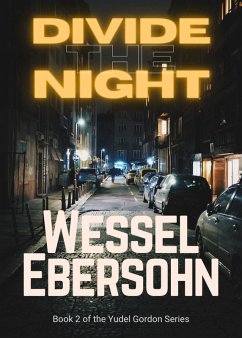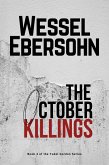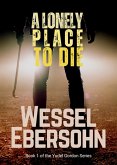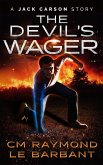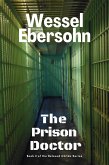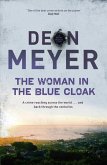"From the place where Cissy stood in the shadow of the usedcar dealer's sign, watching, she could see the door dearly. She had passed it coming down the road and it had been open then. Through the narrow opening she had been able to see the stack of biscuit boxes that did not seem to have been opened yet.
"The cement floor was cold, she heard feet move on the floor. "Come out. I don't want to play games with you. I don't want any trouble." Cissy pushed the boxes away and scrambled out, half-rising, her hands clasped together in an attitude of supplication. "Please, Mister. Please, Mister. Me and my brother are very hungry."
Cissy Abrahamse was the eighth person to die in or near the store room of the Twin Sisters café. Most were street children, all were hungry and all yielded to the temptation of the half open store room door. The killer in every case was the aged and partly crippled café owner Johnny Weizmann. Protected by the Criminal Procedure Act through which such killings could easily be presented as self-defence, the courts had so far not seen his actions as crimes.
But Weizmann has ignored a court ruling that forced him to seek psychiatric help. When Colonel Freek Jordaan of the CID realises this, he compels Weizmann to visit prison psychologist Yudel Gordon.
Yudel's treatment of Weizmann brings him into conflict with the old man's friends in the security police who secretly approve of his killings. It also brings Yudel face-to-face with a mysterious black activist by the name of Muntu Majola. What the connection is between the activist, the old murderer and the security police is a puzzle that complicates the search for a way to stop Weizmann killing again.
Dieser Download kann aus rechtlichen Gründen nur mit Rechnungsadresse in A, B, CY, CZ, D, DK, EW, E, FIN, F, GR, H, IRL, I, LT, L, LR, M, NL, PL, P, R, S, SLO, SK ausgeliefert werden.

